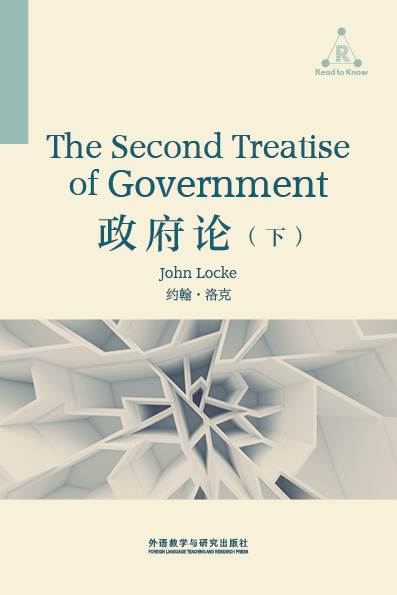近代资产阶级革命的《圣经》,媲美亚里士多德的《政治学》。
《政府论》是洛克最重要的政治论文。在《政府论》(下)中洛克则试图替光荣革命辩护(但根据拉斯莱特的考证,政府论发表之时,光荣革命尚未发生,因此这部著作是在呼唤一场革命而不是为已经发生的革命辩护),提出了一套正当政府的理论,并且主张当政府违反这个理论时,人们就有权推翻其政权。洛克还巧妙的暗示读者当时英国的詹姆斯二世已经违反了这个理论。
The Second Treatise outlines a theory of civil society. John Locke begins by describing the state of nature, a picture much more stable than Thomas Hobbes' state of "war of every man against every man," and argues that all men are created equal in the state of nature by God. From this, he goes on to explain the hypothetical rise of property and civilization, in the process explaining that the only legitimate governments are those that have the consent of the people. Therefore, any government that rules without the consent of the people can, in theory, be overthrown.
- 第一章 论政治权力
- 第二章 论自然状态
- 第三章 论战争状态
- 第四章 论奴役
- 第五章 论财产
- 第六章 论父权
- 第七章 论政治社会或公民社会
- 第八章 论政治社会的发轫
- 第九章 论政治社会和政府的目的
- 第十章 论国家的形式
- 第十一章 论立法权的范围
- 第十二章 论国家的立法权、执行权和对外权
- 第十三章 论国家权力的统属
- 第十四章 论特权
- 第十五章 综论父权、政治权力和专制权力
- 第十六章 论征服
- 第十七章 论篡夺
- 第十八章 论暴政
- 第十九章 论政府的解体
- Chapter I Of Political Power
- Chapter II Of the State of Nature
- Chapter III Of the State of War
- Chapter IV Of Slavery
- Chapter V Of Property
- Chapter VI Of Paternal Power
- Chapter VII Of Political or Civil Society
- Chapter VIII Of the Beginning of Political Societies
- Chapter IX Of the Ends of Political Society and Government
- Chapter X Of the Forms of a Commonwealth
- Chapter XI Of the Extent of the Legislative Power
- Chapter XII Of the Legislative, Executive, and Federative Power of the Commonwealth
- Chapter XIII Of the Subordination of the Powers of the Commonwealth
- Chapter XIV Of Prerogative
- Chapter XV Of Paternal, Political and Despotical Power, Considered Together
- Chapter XVI Of Conquest
- Chapter XVII Of Usurpation
- Chapter XVIII Of Tyranny
- Chapter XIX Of the Dissolution of Government
- 书评 写书评
- 笔记
-
书评加载中...























 京公网安备 11010802032529号
京公网安备 11010802032529号
笔记加载中...